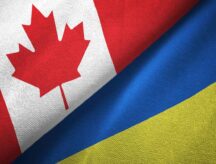Want to protect your money as an immigrant or refugee to Canada? Avoid these fringe banking mistakes
Regulated by the federal government, Canada’s banking system is considered among the world’s safest and most stable.
However, immigrants and refugees can sometimes find themselves being taken advantage of by fringe financial services in Canada like payday loan companies, cheque-cashing outlets, rapid-refund tax outlets or pawn shops. As a result, they can lose their hard-earned income to the exorbitant fees and high-interest rates of these organizations.
Windmill Microlending, a Canadian charity focusing exclusively on helping skilled immigrants and refugees pay for the costs of accreditation, training, certification and professional development, in their new country, knows our clients want to make the best financial decisions possible. But it can take time to learn the nuances of the Canadian financial system, including understanding the risks of fringe banks and lenders.
Using fringe financial services can often cost much more than the fees paid at a traditional bank or credit union. Below, you’ll find examples of the types of financial services to watch out for and alternatives to consider.
In a time of higher cost-of-living in Canada, Windmill Microlending has introduced an offer to support skilled immigrants and refugees who need financial support to pay for the costs of training, education and career development. Our new fixed-interest rate of 5.95% on a Windmill microloan will enable you to better manage your budget while reaching your full career potential in Canada.
In order to qualify for a Windmill microloan, loan applicants must be:
- an immigrant and a Permanent Resident
- Protected Person
- Convention Refugee
- Province Nominee
- Canadian Citizen, or
- Temporary Foreign Worker with an open work permit
- Be internationally-trained and have completed post-secondary education outside Canada and/or have a minimum of one year of post-secondary work experience before coming to Canada
- If you happen to be an international student, live-in caregiver or refugee claimant, you do not qualify for a loan unfortunately
Cheque-Cashing Outlets
What they do: Cash cheques if you do not have a bank account, usually charging a percentage of your cheque plus a service fee. For example, on a $1,000 cheque they could charge a 3% fee ($30) plus a $3 service fee for a total charge of $33.
Alternative to consider: A basic bank account providing deposit, withdrawal and cheque writing privileges. Federal government cheques under $1,500 can be cashed, with ID, for no charge.
Payday Loans
What they do: Offered by private lenders and cheque-cashing outlets, they provide short-term loans of 2-4 weeks against your next paycheque. You can borrow up to 50 per cent of your next paycheque amount. Payday loans are very expensive ways to borrow money as they have high service fees and interest charges. These get even higher if you do not pay the loan back on time. For example, if you earn $1,000 on your paycheque, you can borrow $500 from a payday loan service but could end up paying double that or more, with interest and other fees, depending on loan terms.
Alternative to consider: Try using money from your emergency reserves or savings account or inquire about securing a loan from a family member or friend. You may also be able to get a loan from your bank or credit union. If it is to be used for costs of accreditation, education or training you can get one from Windmill Microlending.
Rapid-Refund Tax Services
What they do: They provide “instant refunds,” but these are not tax refunds. They are very expensive loans. They charge high fees for services, including preparation fees, electronic filing fees, cheque cashing fees and loan charges. These fees can add up to hundreds of dollars. You get a refund amount right away, less the fees. The government then sends your tax refund to the service which pays off your loan.
Alternative to consider: Arrange a direct deposit in your bank account for your tax refund. Use free charitable community tax clinics for support in receiving your tax refund as efficiently and economically as possible.
Pawn Shops
What they do: Loan cash in exchange for valuable objects, such as jewelry and electronics. These objects are “collateral”. If you repay the loan, you get the object back. If you don’t, the pawn shop keeps the item and sells it to someone else. These businesses charge high-interest rates and fees.
Alternative to consider: Look to other sources for the money you need such as family, friends, emergency funds and government grants.
Learning about these fringe banking services, and alternatives to avoid them, can help you make smart and safe banking decisions as a newcomer to Canada. This can also help you avoid high interest rates, hidden fees and protect your money.
Are you a skilled immigrant or refugee in need of an affordable loan to pay for the costs of accreditation, education, training or professional development courses in Canada? Take our two-minute eligibility quiz to find out if a Windmill Microlending loan can help you.
- Do you need Canadian immigration assistance? Contact the Contact Cohen Immigration Law firm by completing our form
- Send us your feedback or your non-legal assistance questions by emailing us at media@canadavisa.com







